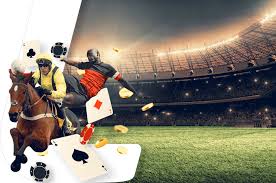
Mastering the Game: Best Poker Strategies for Cash
In the world of poker, the quest for success and profit is a journey that requires not only skill but also strategy. The dynamics of cash games can be vastly different from tournament play, providing unique opportunities and challenges. If you’re looking to elevate your game and maximize your profits, understanding the best poker strategies for cash is essential. To dive deeper into gaming experiences, consider exploring Best poker strategies for cash vivi casino, which offers a range of poker experiences that can help enhance your skills.
Understanding Cash Games
Before we delve into strategies, it’s crucial to understand what cash games are. In contrast to tournament play, cash games allow players to buy in for a specific amount of chips, which can be cashed out at any time. This flexibility means players can choose their stakes and can play as long or as short as they like. The goal in cash games is to maximize your profit per hour rather than accumulate chips to survive an event.
1. Bankroll Management
One of the cornerstones of successful cash game play is effective bankroll management. A well-managed bankroll allows you to endure the inevitable swings in poker and continue playing your best game without risking financial ruin. The common advice is to have at least 20-30 buy-ins for the limits you are playing. This ensures that you can withstand variance and prevents emotional decisions that can derail your game.
2. Table Selection
Not all tables are created equal, and choosing the right one can significantly impact your winnings. Look for tables with players who are less skilled than you, those who play too many hands, and those who are prone to making poor decisions. Observing the dynamics of the table before joining can save you time and money.
3. Play Tight but Aggressive
In cash games, playing a tight-aggressive style is often more profitable than being loose-passive. This means you should play fewer hands but play them aggressively when you do enter the pot. Focus on strong starting hands and position—be more cautious in early positions and open up your range in late positions. This approach allows you to control the action and extract more value from your strong hands.
4. Positional Awareness
Understanding positions at the poker table and how they affect your strategy is vital. Players in late position (the last to act in a betting round) have a significant advantage, as they can observe how other players act before making their decisions. Use this to your advantage by playing a wider range of hands from late position and folding more hands from early position.
5. Reading Your Opponents

One of the most important skills in poker is the ability to read your opponents. Pay attention to their betting patterns, body language, and tendencies. Are they aggressive or passive? Do they bluff often? Understanding these aspects of your opponents’ play can help you make informed decisions, allowing you to exploit their weaknesses rather than playing a one-dimensional strategy.
6. Adjusting to Opponents
Effective poker involves adaptability. You should adjust your strategy based on the tendencies and styles of the players at your table. For instance, if you notice that a player is overly aggressive, you can play more hands against them and trap them with strong hands. Conversely, if you’re up against passive players, you may need to be more aggressive to force them to fold when you want to take down pots.
7. Pay Attention to Bet Sizing
Bet sizing is a critical component of your poker strategy. The size of your bets can communicate a lot about the strength of your hand. Make sure to vary your bet sizes to keep your opponents guessing. If you always bet the same amount, savvy players will catch on to your strategy. Moreover, using appropriate bet sizes can help extract value from your strong hands or protect your weaker hands against drawing possibilities.
8. The Art of Bluffing
Bluffing is a natural part of poker, but it needs to be executed wisely. The best bluffs use favorable board textures that reflect the strength of your hand or involve scare cards that may lead your opponents to think twice about their hands. Additionally, consider your image at the table; if you’ve been playing tight, your bluffs are likely to be more credible. Conversely, if you’ve been caught bluffing, players may call you down more often.
9. Learning from Mistakes
Every poker player makes mistakes, but the difference between good players and great players lies in their ability to learn from them. After each session, take some time to review key hands, especially those that resulted in losses. Analyze your decisions, your opponents’ actions, and potential alternative plays you could have made. This self-review process is essential for continual improvement.
10. Utilize Pot Odds and Expected Value
Understanding pot odds and expected value (EV) is crucial to making sound decisions in cash games. Pot odds help you determine whether a call is worth it based on the potential payout relative to the amount you need to invest. On the other hand, making decisions focused on positive expected value ensures that your plays are profitable in the long run. Familiarize yourself with the formulas and practice calculating these elements in real-time, as they will guide your decision-making process.
Conclusion
Mastering cash games requires a blend of strategy, discipline, and adaptability. By focusing on bankroll management, understanding table dynamics, playing a tight-aggressive style, and continuously improving your skills, you can set yourself up for success. Remember that poker is a game of skill, and the best players are those who constantly strive to learn and adapt. Whether you’re playing online or in a brick-and-mortar casino, applying these best poker strategies for cash can help you elevate your game and increase your winnings.
Good luck at the tables, and may your chips always be in your favor!
